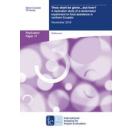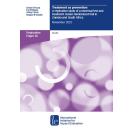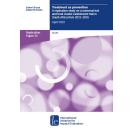
Thou shalt be given... but how? A replication study of a randomized experiment on food assistance in northern Ecuador
3ie Replication Paper 17
Lhachimi and Seuring re-examine the results of a cluster-randomized evaluation carried out by Melissa Hidrobo and colleagues in 2013 in two provinces in northern Ecuador. The original study investigated the effectiveness of three modes of food assistance—cash, food and vouchers—aimed at improving nutritional outcomes. They found that all three modes improved the quantity and quality of food consumption to a similar extent, but with some exceptions. They also carried out a cost-effectiveness analysis, which indicated that direct food provision was the least cost-effective way to improve nutritional outcomes, while cash and vouchers were equally cost-effective.
The replication authors are able to confirm the original results, using both push-button and pure replications. The measurement and estimation analysis investigated potential contamination of post-intervention preferences for treatment modes in regional units where more than one mode was tested. While some differences in preferences were found in units with more than one treatment mode, the evidence is not conclusive. Differential treatment effects between provinces were also investigated and some evidence was found that for some outcomes, intervention effects may vary in magnitude by province. The theory of change analysis investigates the uncertainty around the original cost-effectiveness analysis and suggests that further research could be important to answer the question of whether cash or vouchers are more cost-effective.

